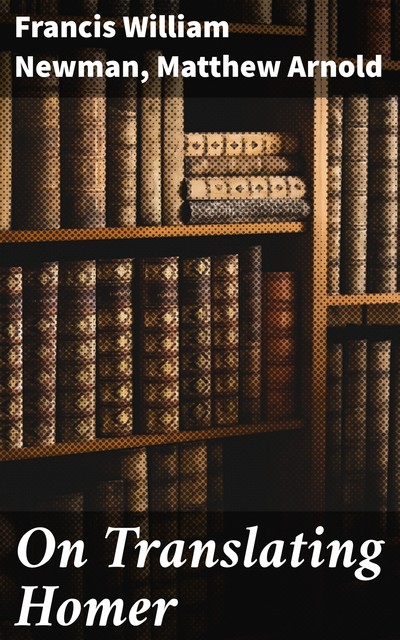We use cookies to improve the Bookmate website experience and our recommendations.
To learn more, please read our Cookie Policy.
To learn more, please read our Cookie Policy.
Accept All Cookies
Cookie Settings
In the thought-provoking anthology 'On Translating Homer,' the thematic focus delves into the complex artistry and intellectual rigor required for translating one of history'Äôs most revered epic poets. The collection expertly examines the intricacies involved in transferring Homer'Äôs ancient Greek into modern English, balancing fidelity to the original text with the necessity of accessibility for contemporary audiences. The essays included within explore a diversity of interpretative styles and scholarly approaches, revealing the profound challenges and notable successes in capturing the essence of Homer'Äôs voice. This collection is a testament to the epic'Äôs enduring legacy and intellectual allure, dissecting questions of poetic justice and fidelity inherent in the craft of translation. Francis William Newman and Matthew Arnold, esteemed luminaries in the world of classical literature and translation, lead this scholarly exploration. Drawing from their comprehensive understanding and vast expertise, they contribute significant perspectives that illuminate the discourse surrounding Homeric translations. This collective work is steeped in the Victorian era'Äôs intellectual milieu, aligning with the period'Äôs rich tradition of classical revival and reflective of the expanding horizons in language and literary criticism. Together, these authors offer a compelling dialogue that enriches the reader'Äôs engagement with both Homer and the broader complexities of translation. 'Readers are presented with an unparalleled opportunity to engage with divergent viewpoints on translating one of antiquity'Äôs most influential works. 'On Translating Homer' serves as more than a mere collection of essays; it is an educational journey through the myriad interpretations and methodologies employed by translators. The anthology'Äôs academic value is undeniable, offering robust insights that provoke reflection and fostering a continuous dialogue between its contributors. It is a must-read for enthusiasts of classical literature, translation studies, and anyone seeking a deeper appreciation for the nuanced dance between language, culture, and interpretation interwoven throughout Homer'Äôs epic tales."}
more
244 printed pages
- Copyright owner
- Bookwire
- Original publication
- 2021
- Publication year
- 2021
- Publisher
- Good Press
Have you already read it? How did you like it?
👍👎
fb2epub
Drag & drop your files
(not more than 5 at once)


